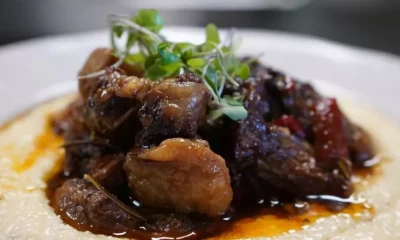Business
Republican Lawmakers Unveil Bold Initiative to Limit Taxes on Food and Drink

By Matthew Holloway |
Arizona’s Republican lawmakers are advancing a proposal aimed at reducing grocery costs for families. A referendum is set to be sent to voters that would cap transaction privilege taxes on food items for home consumption at 2 percent.
Led by Republican State Representative Leo Biasiucci, the initiative represents a compromise after initial efforts to impose an outright ban on such taxes faced opposition from State House Democrats and Governor Katie Hobbs. Previous legislation to enact this measure encountered a swift veto from Hobbs, prompting the need for a revised approach under HCR 2021.
“These are essentials for families,” Biasiucci stated. “Taxing basic items like eggs, milk, and bread is unthinkable.”
In a recent social media post, Biasiucci expressed support for removing taxes on essential food items, including vegetables and baby food, and indicated that his bill had passed committee with a 4-2 vote. He emphasized the regressive nature of taxing food items, calling for an end to such practices.
Last year, a similar measure passed both legislative chambers but faced a veto due to concerns from municipal leaders regarding potential cuts to essential city services without the tax revenue. In her veto message, Hobbs argued that the bill would merely redistribute costs rather than eliminate them.
State Rep. Neal Carter, representing San Tan Valley, noted significant increases in municipal sales tax revenues fueled by online sales following the Supreme Court’s South Dakota v. Wayfair decision. He remarked that while cities have enjoyed a 60% revenue boost from 2019 to 2024, their expenses have also risen, making spending cuts politically sensitive.
“This is a deeply regressive tax,” Carter asserted. “If I were to design a regressive tax, it would target the essentials for survival—food.”
Biasiucci also highlighted the burden of increased taxes amidst rising inflation. “Who would support these taxes on essentials for families?” he asked. He pointed to the financial strain that families are currently facing.
The compromise allows municipalities with tax rates below 2% to potentially raise their rates with voter consent. However, for the majority of Arizona’s municipalities currently taxing groceries between 1.5% and 4%, some may be required to decrease their taxes, prompting necessary discussions about budget adjustments in other areas.
Having garnered mostly Republican support with few Democratic votes, the resolution was presented in the Senate for review and awaits a final vote following discussions on March 10th and 11th.
Matthew Holloway is a senior reporter for AZ Free News. Follow him on X for his latest stories, or email tips to Matthew@azfreenews.com.


















